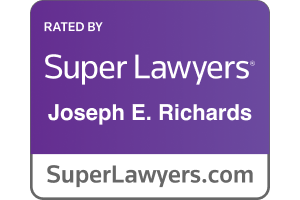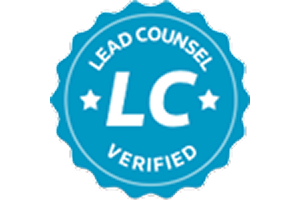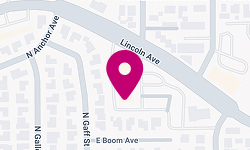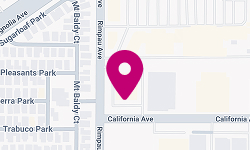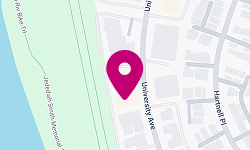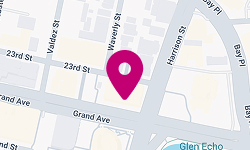- Free Consultation: (888) 883-6588 Tap Here To Call Us
The Role Of Witnesses In Employment Discrimination Cases

Employment discrimination can profoundly affect a person’s career, health, and future. In California, workers facing discrimination based on race, gender, age, or disability have legal options to pursue justice and financial compensation. Witnesses play a critical role in these cases, helping to clarify what happened and supporting discrimination claims. These witnesses might include coworkers, supervisors, or HR personnel, each offering valuable insights. Knowing how witness testimony works and the laws around it is essential for building a strong case.
The Fair Employment and Housing Act (FEHA) is key to protecting workers from discrimination, harassment, and retaliation in California workplaces. Witnesses contribute to discrimination cases by offering firsthand accounts of discriminatory behavior, remarks, or treatment. The California Code of Civil Procedure also provides rules for gathering and presenting witness statements in court. Here, we’ll explore the impact of witnesses in employment discrimination cases, discuss the different types of witnesses commonly involved, and explain how California law shapes this process.
How Witnesses Help Prove Employment Discrimination
Witnesses bring insight into workplace behavior, interactions, and specific incidents of discrimination. They help establish the facts and provide essential context. Under FEHA, it’s important to show that discriminatory behavior was directly related to a protected trait, such as race or gender. Witnesses can testify about specific statements, actions, or policies that reveal bias or discrimination, creating a more robust foundation for the case.
Witnesses also play a significant role in corroborating the plaintiff’s account of events. When multiple witnesses share similar experiences or observations of discriminatory behavior, it strengthens the case and establishes a pattern. California law allows for these accounts to add important context, as outlined in the California Code of Civil Procedure § 2025, which guides depositions and witness statements. Strong witness accounts can increase the likelihood of a favorable outcome.
Types Of Witnesses In Employment Discrimination Cases
Witnesses can play an important role in employment discrimination cases, each providing unique insights. Here’s an overview of the main types of witnesses and how they contribute:
Coworkers And Colleagues
Coworkers are often powerful witnesses, especially if they observe discriminatory behavior or overhear biased remarks. They can describe instances of mistreatment and its impact on the workplace environment. Coworkers may also provide evidence of unequal treatment regarding assignments, promotions, or reprimands, helping to show how discriminatory behavior affected the plaintiff’s work experience.
Supervisors And Managers
Supervisors and managers have direct knowledge of workplace policies, practices, and decisions. If a supervisor or manager made discriminatory comments or treated employees differently based on protected traits, their testimony could be crucial. California law requires that managers provide truthful testimony in depositions. Their testimony can either strengthen the case if it aligns with the allegations or serve as a point of cross-examination if their accounts differ.
Human Resources Personnel
Human Resources (HR) professionals often witness or handle discrimination complaints, making them essential witnesses in many cases. HR personnel can provide records of complaints, investigations, and disciplinary actions, which may reveal patterns of discriminatory practices. California Code of Civil Procedure § 1985.3 allows plaintiffs to obtain business records, including internal communications related to alleged discrimination.
Outside Observers Or Contractors
Sometimes, contractors, consultants, or third-party workers witness discriminatory actions. Since they are not as involved in daily operations, their testimony can carry additional credibility due to perceived impartiality. Contractors can provide statements about incidents they observed, particularly if they regularly worked in the workplace.
Preparing Witnesses For Employment Discrimination Cases
Thorough witness preparation is vital in employment discrimination cases. Witnesses need to be ready to answer questions clearly and factually, sticking to what they observed. California Evidence Code § 702 requires that witnesses have personal knowledge of the matters they testify about, which means they must avoid speculation.
Preparation often involves going over relevant documents, like emails or HR records, that could support the witness’s statements. We also review possible questions that might arise during depositions or in court. Our aim is to make sure witnesses feel comfortable and confident, allowing them to give clear and accurate testimony about their experiences.
How Witness Testimony Influences Employment Discrimination Cases
Witness testimony plays a critical role in determining the outcome of an employment discrimination case. Witnesses who give clear and consistent firsthand accounts of discriminatory incidents can reinforce the plaintiff’s claims. When multiple witnesses share similar observations, it creates a pattern that can significantly strengthen the case.
Under California Civil Code § 3288, punitive damages may be awarded in cases of especially severe discrimination. Witnesses who describe repeated or ongoing discriminatory behavior can help support claims for these damages, which are meant to discourage employers from similar actions in the future. In this way, witness testimony not only shows that discrimination occurred but can also result in higher compensation for the plaintiff.
Legal Protections For Witnesses In Employment Discrimination Cases
In California, witnesses are legally protected from employer retaliation. FEHA prohibits employers from retaliating against employees who testify or assist in discrimination cases. This protection encourages employees to speak up about wrongful practices without fearing job loss or adverse consequences. Knowing that the law protects them, witnesses can contribute fully to the case.
California Labor Code § 1102.5 also offers protection against retaliation for employees who report or testify about illegal practices. This anti-retaliation statute assures employees that they will not face punishment for participating in discrimination cases. As attorneys, we make sure witnesses understand these protections so they can feel safe sharing their testimony.
California Employment Discrimination Case FAQs
How Do Witnesses Help Prove Employment Discrimination?
Witnesses provide firsthand accounts of discriminatory behavior or comments, reinforcing the plaintiff’s case by adding context and demonstrating patterns. Their testimony helps show the specific circumstances in which discrimination occurred, supporting the claim. In California, Code of Civil Procedure § 2025 ensures that witness statements are preserved in depositions for use at trial.
Can Coworkers Refuse To Testify In An Employment Discrimination Case?
Coworkers may refuse to testify, but if their testimony is crucial, they can be subpoenaed. A subpoena legally requires someone to provide evidence or testimony. Refusing a subpoena may have legal consequences. Witnesses are important in discrimination cases, and California law provides ways to secure necessary testimony.
What Protections Are There For Witnesses In California Against Retaliation?
California law, particularly FEHA and Labor Code § 1102.5, protects witnesses from employer retaliation. These laws prevent employers from taking adverse actions, like demotions or terminations, against employees who testify or provide evidence in discrimination cases. This protection encourages a fairer process and allows employees to participate without fear.
Contact Our Orange County Employment Discrimination Lawyer For Your Free Consultation
At Law Office of Joseph Richards, P.C., our employment discrimination lawyer is dedicated to helping employees who have experienced discrimination and to supporting the role that witnesses play in these cases. Employment discrimination is serious, and if you have been affected, we are here to help you navigate the process and pursue the compensation and justice you deserve.
If you or someone you know has been impacted by employment discrimination, please contact our Orange County employment discrimination lawyer at Law Office of Joseph Richards, P.C., at 877-562-9637 or 877-JOB-WOES to receive your free consultation. We represent clients throughout California from our offices in Orange, Inland Empire, Los Angeles, Sacramento, and Oakland. We are near you to provide clients with the guidance and representation clients need.
















